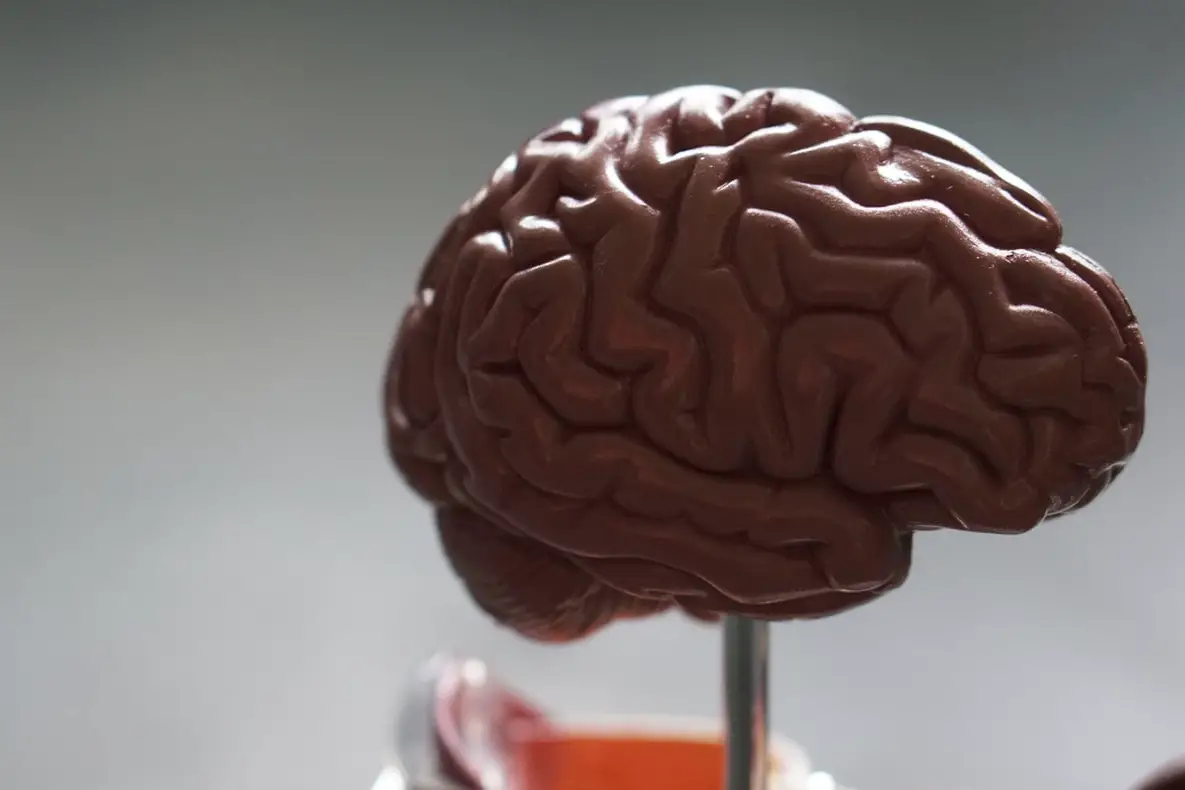Mental health is an increasingly frequent topic of conversation, especially during the current pandemic. Tips and tricks on how to take care of your emotional wellbeing abound in articles and on social media, advocating for more mental health awareness as well as a widespread commitment to self-care. But the conversation, while important, often takes a dualistic approach, separating mind and body — focusing more on the former. In reality, taking care of your mind requires a holistic approach, as mental struggles often manifest not only emotionally, but physically. Luckily, psychologist Kimberley Wilson is providing important resources on how to use nutrition, exercise and more to take care of your brain.
Based in London, Wilson is a chartered psychologist with a degree in nutrition who has been passionate about food and mental health since she was young. While you may recognize her as a finalist from the 2013 season of “The Great British Bake-Off,” Wilson is now a leading voice on mental wellness and psychology in the UK.
Dissatisfied with traditional approaches to mental health care, she came up with her own philosophy, which she refers to as “Whole Body Mental Health.” Wilson’s philosophy integrates nutrition and other lifestyle factors into her psychotherapy practice.
https://www.instagram.com/p/CBqDZJ7H1Nc/?utm_source=ig_web_copy_link
Through her recently published book, podcast, book club and social media presence, Wilson educates the public about mental health and its varied implications on our wellbeing. She is particularly passionate about providing well-researched information in an accessible way to her social media audience, as she recognizes both the benefits and drawbacks of internet culture.
“People in remote parts of the world now have access to information in a way that is completely unprecedented, and can participate in social life in ways they never could before,” Wilson said in a recent interview.
“At the same time, the internet has enabled the spread of nonsense and misinformation in a way that feels convincing. It makes me angry because we have a responsibility to each other. You can’t just say things and not understand that your words have meaning, and that people who believe you, and who trust you, may act on them. And that action could have serious consequences for their health.”
Wilson’s Instagram account is a must-have resource for those seeking to learn more about her Whole Body Mental Health philosophy from a thorough, reputable source. Wilson posts a balance of quick encouragement, colorful pictures of brain-supporting meals and in-depth videos explaining certain aspects of health and psychology. In many of her post captions, she includes citations of scientific studies that back up the information she shares.
On Instagram, Wilson makes complex and important mental health information accessible and easy to understand. I especially appreciate some of her longer videos that explain the science of our brains while also giving actionable suggestions.
In one particularly helpful series of videos, Wilson describes how serotonin works in the brain and how the body synthesizes food within the serotonin production process. With simple diagrams, Wilson shows how you can provide your body with neurotransmitter support, not only with medication and supplements, but through the food we eat.
https://www.instagram.com/tv/B_JpbF4HwnO/?utm_source=ig_web_copy_link
Wilson’s focus on food and nutrition is what makes her approach to mental health unique. In a general sense, many are aware that eating well helps improve physical and mental health. However, Wilson goes further, giving more details on how nutrition directly impacts the brain, and she helps her followers implement good nutrition into their own lives.
I love Wilson’s comprehensive but flexible approach to nutrition. Aware of the effects that dieting can have on mental health and disordered eating patterns, Wilson encourages healthy eating habits that are easy to incorporate into daily life.
Instead of focusing on avoiding unhealthy foods, she encourages adding in more nourishing foods. Her Instagram feed is a testament to the variety of foods that are good for your brain; it features dishes ranging from onion squash risotto to blueberry lemon drizzle cake.
https://www.instagram.com/p/B4pPIiiHNAR/?utm_source=ig_web_copy_link
According to Wilson, food is not only meant to feed the body, but it is also meant to be enjoyed and even indulged sometimes. Thus, she encourages her followers to commit to cooking both nutritious and tasty food.
Wilson applies this flexible approach to all aspects of self-care. Rather than being perfect, she believes that developing healthy habits and implementing them most of the time is enough for maintaining great health.
Delivering on her commitment to accessibility, Wilson has free resources on her website that will help you implement a self-care routine into your life. In one of these worksheets, she includes a list of various healthy habits, breaking them down into different categories like “sleep,” “food,” “emotions” and “relationships.”
With nearly 50 tasks to check off the list, it may seem daunting at first, but Wilson’s instructions are simple — just accomplish three things per day, each in a different category. With tasks ranging from “ate a handful of raw nuts” to “sang a power ballad in the shower,” cultivating a brain-healthy lifestyle is not only achievable, but enjoyable.
In addition to everyday nutrition and lifestyle suggestions, Wilson also provides great resources on more specialized topics. In the realm of chronic health, she delivers insights on the gut-brain axis and how irritable bowel syndrome (IBS) can relate to mental health. If you or a loved one has had trouble treating both digestive and mental health issues, then I especially recommend that you check out Wilson’s work.
As a Black wellness educator, Wilson also has unique insights into how racism and oppression impact BIPOC folks’ mental health, and she advocates for positive change.
In the wake of George Floyd’s murder, she discussed racial weathering and health disparities on her Instagram, educating followers on how racial oppression creates chronic health issues for BIPOC individuals and communities.
https://www.instagram.com/p/CA0Kru6HG2T/?utm_source=ig_web_copy_link
She also advocates for having tough conversations and moral courage surrounding antiracist work, making her a great mental health practitioner to follow for those seeking to learn about and improve BIPOC mental health.
Whether you are managing a busy schedule or trying to stay positive during a pandemic, taking care of your headspace can be challenging. Although it can seem like your brain is disconnected from your body, nourishing them both will help your overall health in the long run.
By using Kimberley Wilson’s resources and following her encouraging and insightful posts on social media, you will be well on your way to maintaining a healthy brain and body, no matter what life brings.

















